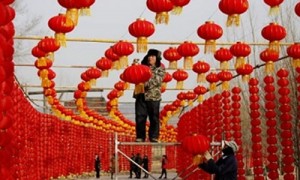At least 181 people have been transported to area hospitals, 49 with serious injuries.
San Francisco General said they have received 34 patients, including 23 adults and 11 children. Five were reported in critical condition. Hospital spokeswoman Rachael Kagan said the adult patients range in age from 20 to their 40s. It was not immediately clear the ages of the children.
For several hours, officials were reporting 60 people unaccounted for from among passengers and crew aboard the flight. However, they now say all but one has been located. San Francisco Fire Chief Joanne Hayes-White said of the investigation, "This is a work in progress."
Asiana Airlines issued a statement that listed the number of passengers and their nationalities: 77 Korean citizens, 141 Chinese citizens, 61 U.S. citizens and 1 Japanese citizen.
The passengers from China included a teacher and 34 high school students.
A spokesperson for San Francisco General said most of the passengers taken to the hospital are Korean-speaking. We are working to get interpreters for them," she said, "but they are quite critically injured so there is not a lot of discussion with them at this time."
The National Transportation Safety Board said it was sending a team of investigators to San Francisco to probe the crash. NTSB spokeswoman Kelly Nantel said Saturday that NTSB Chairman Deborah Hersman would head the team.
The FBI said that, at this point in time, there is no indication of terrorism involved in the incident.
Meanwhile, President Obama is expressing his gratitude to the first responders at the scene of the airliner crash in San Francisco. The White House says in a statement that Obama has directed his team to stay in constant contact with federal, state and local partners as they investigate and respond to the accident.
The White House says the president's thoughts and prayers go out to the families of those affected by the crash.
Early reports indicate that Asiana Airlines Flight 214 made a hard landing, with the tail of the plane striking the runway and breaking off.
The resulting fire sent black smoke billowing into the air, visible for miles.
"The plane started coming in at an odd angle, there was a huge bang and you could see the cloud of huge black smoke," Kate Belding, who was jogging near the airport at the time of the crash, told CBS Station KPIX San Francisco.
"It was a horrible thud," said Kelly Thompson, who observed the crash a hotel parking lot at the airport. She said the plane bounced, then slid on the runway.
David Eun, a Samsung executive who was on board the plane, posted a photo online showing passengers leaving the wreckage.
I just crash landed at SFO. Tail ripped off. Most everyone seems fine. I'm ok. Surreal... (at @flySFO) [pic] -- https://t.co/E6Ur1XEfa4
— David Eun (@Eunner) July 6, 2013
Rescue vehicles were on the scene immediately afterwards, with fire trucks spraying a white fire retardant on the wreckage.
Spokesperson Lt. Cdr. Shawn Lansing told CBS News that the U.S. Coast Guard flew two people with burns from the triage center via helicopter to Stanford University Hospital. The severity of the burns is unknown.
The airport was closed for several hours, with flights diverted to Oakland, Sacramento, Los Angeles, San Jose and Seattle. At about 3:30 p.m. PT, the airport announced that two runways have reopened.
Arnold Barnett, an aviation expert at MIT, told KCBS it was possible the plane could have experienced a power shortage that caused the pilot to lose control. He said a similar incident occurred involving a Boeing 777 at London's Heathrow Airport in 2008.
British Airways Flight 28 landed hard about 1,000 feet short of the runway and slid onto the start of the runway. The impact broke the 777-200's landing gear. There were 47 injuries, but no fatalities.
An investigation revealed ice pellets that had formed in the fuel were clogging the fuel-oil heat exchanger, blocking fuel from reaching the plane's engines. The Rolls-Royce Trent 800 series engines that were used on the plane were then redesigned.
Bill Waldock, an expert on aviation accident investigation, said he was reminded of the Heathrow accident as he watched video of Saturday's crash. "Of course, there is no indication directly that's what happened here," he said. "That's what the investigation is going to have to find out."
The Asiana 777 "was right at the landing phase and for whatever reason the landing went wrong," said Waldock, director of the Embry-Riddle University accident investigation laboratory in Prescott, Ariz. "For whatever reason, they appeared to go low on approach and then the airplane pitched up suddenly to an extreme attitude, which could have been the pilots trying to keep it out of the ground."
Asiana is a South Korean airline, second in size to national carrier Korean Air. It has recently tried to expand its presence in the United States, and joined the Star Alliance, which is anchored in the U.S. by United Airlines.
The 777-200 is a long-range plane from Boeing. The twin-engine aircraft is one of the world's most popular long-distance planes, often used for flights of 12 hours or more, from one continent to another. The airline's website says its 777s can carry between 246 to 300 passengers.
The last time a large U.S. airline lost a plane in a fatal crash was an American Airlines Airbus A300 taking off from JFK in 2001.
Smaller airlines have had crashes since then. The last fatal U.S. crash was a Continental Express flight operated by Colgan Air, which crashed into a house near Buffalo, N.Y. on Feb. 12, 2009. The crash killed all 49 people on board and one man in a house.
Asia remains one of the fastest-growing regions for aviation in the world. Even with slowing economies in Japan and China, airlines there saw 3.7 percent more passengers than a year ago, according to the International Air Transport Association.
Finding enough experienced pilots to meet a growing number of flights is becoming a problem. A 2012 report by aircraft manufacturer Boeing said the industry would need 460,000 new commercial airline pilots in the next two decades -- with 185,000 of them needed in Asia alone.
"The Asia-Pacific region continues to present the largest projected growth in pilot demand," the report said.
综合外国媒体7月7日报道,一架从韩国首尔起飞的韩亚航空波音777客机6日在美国旧金山国际机场着陆时发生事故,造成至少2名中国女生死亡。乘客不得不从紧急充气滑梯逃生,至少182人送医,49人伤势严重。
根据韩亚航空发布的声明,机上共载有307人,其中乘客包括77名韩国人、141名中国人、61名美国人和1名日本人。而中国籍乘客中有1名教师和34名高中生。
旧金山消防局局长乔安妮·海斯-怀特说,严重损毁的机舱外发现两名死者。韩联社称,两名死者持中国护照。
旧金山总医院表示,该医院已接收了52名伤员,包括11名儿童,其中5人情况危急。医院发言人瑞秋•卡根说成年伤员的年纪从20岁至40多岁不等,目前还无法得知儿童伤员的确切岁数。“我们收治的绝大部分伤员都是讲韩语,为此,医院配备了翻译。不过由于伤员伤势严重,所以现阶段无法与他们进行更多交谈。”
美国国家交通安全委员会派出调查小组前往旧金山国际机场调查此次事故。该委员会发言人凯利•南特尔6日表示,委员会主席黛博拉•赫斯曼将亲自带队调查。美国联邦调查局(FBI)认为,现阶段没有任何线索显示这是一起恐怖袭击事件。
美国总统奥巴马向第一时间赶赴现场的救援人员表示感谢。白宫称,奥巴马已下令其下属团队与联邦、州和地方各级的调查和应对机构保持联系,“奥巴马总统会时刻关注遇难者及伤者家属,并为他们祈祷”。
根据此前的报道,客机降落时出现异常,机尾与跑道碰撞断落,飞机随后起火。目击者称,现场火势巨大,冒出的滚滚浓烟,在几公里外清楚可见。
“飞机以一个奇怪的角度落地了,突然间我听见一声巨响,看见阵阵浓烟冲上天空。”事发时,凯特•贝尔汀正在旧金山国际机场附近跑步,她说当时的情景非常可怖。而凯利•汤普森则在距离机场不远处的酒店停车场里看见了事故的发生,他说,飞机猛然撞地,机身回弹,然后又前滑。
韩国三星公司高管戴维是此次坠机事故的幸存者之一,事发后他将一张机上乘客慌忙逃生的照片上传至社交网站。“我刚刚在旧金山国际机场经历了坠机事故,机尾掉落。所幸绝大多数人都看上去安然无事。我也安好。”
事故发生后,救援车辆迅速赶赴现场,消防车向正在熊熊燃烧的飞机残骸上喷洒白色阻燃剂。旧金山消防部门发言人肖恩•兰辛接受媒体采访时表示,美国海岸警卫队动用直升机运送了两名烧伤的伤员至斯坦福大学医院接受救治,目前还无法得知他们的伤势如何。
暂时关闭数小时后,旧金山国际机场于当地时间6日下午3点半重新开放两条跑道。美国麻省理工学院航空专家阿诺德•巴奈特认为,这架波音777客机可能因动力不足致使飞行员失去对飞机的控制,2008年在伦敦希思罗机场就有一架波音777客机发生类似的事故,当时那架英国航空公司的航班在距离跑道不足1000英尺(约合305米)时重重落下,飞机起落架折断,造成47人受伤,但无人遇难。
随后的调查结果显示,飞机燃料中凝结的冰珠阻塞油路,致使燃油无法流向飞机引擎。由此,波音777客机上Trent 800系列引擎被重新设计。
航空专家比尔•瓦尔多克说当他观看6日事故视频时,不禁想起了2008年发生在希思罗机场的事故。“当然,并没有迹象直接表明两起事故发生的原因相似。不过,这架韩亚航空公司的客机也是在着陆阶段出事的,因为某种未知的原因,飞机显得过低,然后突然拉高至一个极端角度,我认为这可能是飞行员在试图将飞机离开地面避免事故发生,”瓦尔多克说。
韩亚航空是韩国第二大的航空公司,仅次于韩国国有航空公司大韩航空。近年来,韩亚航空一直在拓展其在美国市场的占有率,并加入全球最大的航空联盟星际联盟。
波音777是一款由美国波音公司制造的远程双引擎广体客机,经常应用于需要飞行12个小时或以上的长途旅程,其载客量为246人至300人。







